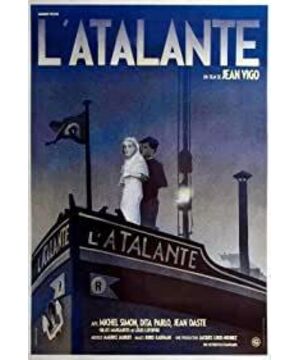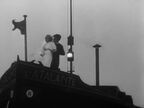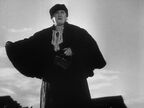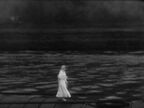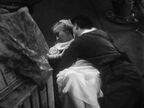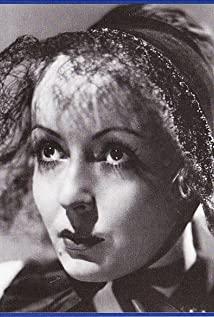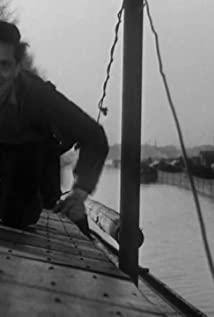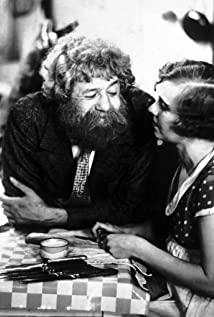The style of the voice, the direction
of the voice—Analysis of the sound of "Barge Atlanta"
Truffau once used "Let Vigo live only 29 years" in an article that recalled Vigo. title. Indeed, this talented director, who only lived to be 29 years old, has left a handful of pens in film history and has become a classic today. In his creative career of only 5 years, he has successfully become a symbol of the French film industry. His "Zero Conduct" even directly influenced Truffaut's masterpiece "400 Strikes". As one of the representative directors of poetic realism, he has some more personal styles than other poetic realism directors such as Carne and Du Weiwei. This may be the reason why Vigo is so attractive.
In Jean Vigo's short creative career, "Barge Atlanta", as the only feature film, and his posthumous work, obviously have extremely important research significance.
Aside from the foggy composition and photography used in poetic realism, today I will talk about "Barge Atlanta", which has a very characteristic sound style.
Like basically all movies, the sound types of this "Atlanta" are also divided into three types, music, sound effects, and character dialogue.
Let me talk about the sound effects first, perhaps because the film was shot in the 1930s, and the sound effects of the film were not delicate enough. However, the extreme neglect of sound effects in Vigo's last work "Zero Points of Conduct" has changed compared to the extreme freehand style of using music to simulate sound effects. So in view of Vigo's consistent personal style, I think that the carelessness of the sound effects is completely deliberate. The desired effect is to deliberately use this default sound effect in certain passages to increase the poetry of the film. Emphasize movies, emotions beyond reality. But in some passages, the sound effects are specific, which is the duality peculiar to poetic realism. However, it is clear that Vigo is more inclined to the "unrealistic" poetry.
Secondly, and most importantly, film music. In this movie, the movie's music, especially the theme music, has also changed its symbolic meaning in the movie.
Although the film begins with intensive music, the first part of the beginning is always surrounded by the faint bell of the church. The purpose of this coordination is not obvious. But the slowly passing bells also seemed to imply a kind of farewell to the old land life. The music was over in about 6 minutes, but this kind of ringtone still exists. Until the characters in the film set foot on the voyage barge "Atlanta".
In the part of the boat, at first, the beautiful theme music appeared on the husband,
but slowly, the hidden disharmony began to sprout. The music starts with an extremely fast and rhythmic. Under the desire of the bridegroom to get married, the heroine is at a loss, but as the old man who symbolizes the spirit of freedom enters the camera, the music begins to relax again, the yearning for freedom and the stability of marriage, these two undercurrents, here, have begun to slow down. Slowly surging.
Immediately afterwards, life on the barge entered a certain dull state. Repeating the boring life on the barge is without music as an accompaniment. But often, there will always be free variations, that is, the old man who symbolizes the connection between the ship and the outside world. And he played the main melody of the film on the boat, which is also the only musical accompaniment for this part. The heroine is at a loss because of the boredom on the boat and the boredom of marriage.
But the shots and poetry at this time are more interesting. The foggy lens of poetic realism is matched with the flow of water. At this time, the director also cleverly used the sound of the siren in the distance to increase the fog outside the lens. Space. It is a very clever approach.
Until 29 minutes, the ship docked, and finally, the background music sounded again. And this theme music, as a symbol of the ground world, is clearly expressed here. Immediately after visiting the old man’s storage room, various sounds were mixed, and at the same time it was very lively and wonderful. This paragraph is the ultimate yearning for freedom.
Later, including dance parties, cities on the shore, the appearance of theme music became more and more dense. Eventually, a hawker portrays the beauty of the city to the heroine, and the heroine's yearning begins to become clear.
But the connection between music and the city began to change after the heroine went ashore. After the heroine came ashore, the sound effects began to become more noisy, but the music suddenly stopped. The heroine at this time has entered a state of confusion.
In silence, the theme of the music has undergone a change. The theme music began to slowly, and more appeared on the boat, in the sad picture of her husband. Obviously, this kind of pretense is the change of the heroine's mood, which implies that she is about to make a choice.
Finally, after a beautiful montage, and timely music. The wife and husband finally united their minds.
Finally, the old man, as a linker between the two worlds, took his wife back, a true symbol of freedom on the ship.
At the end of the article, let me mention the little joke of the voice at 1 hour and 6 minutes. The old man turned the record with his hand and made a sound. It was a very romantic and casual setting. Of course, we finally found out that it was the accordion played by the kid next to him. The sound here has a double surprise. First, we will wonder whether the sound is inside or outside the plot. But following the expression of the old man, we will find that this is within the plot. But there were even stranger questions, how could this happen, of course, it was quickly answered, it was a naughty child. It's really interesting.
I think that the jokes of Vigo’s game movies include his use of montages to undress women in "Impressions of Nice." It really has a deep New Wave brand. Such a talented director, but died so young, what if he could live to the era of the New Wave. Unfortunately, history can never let us go on casually.
View more about L'Atalante reviews


